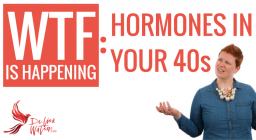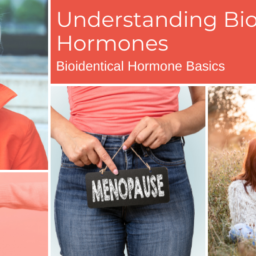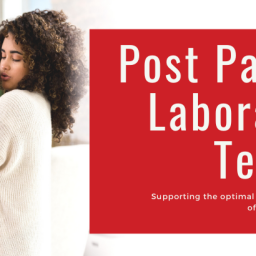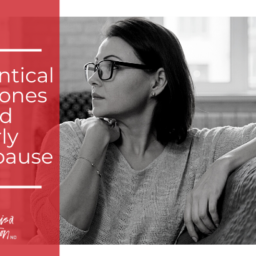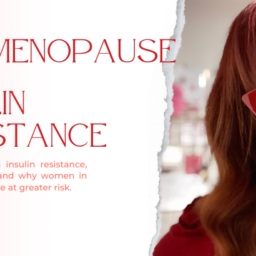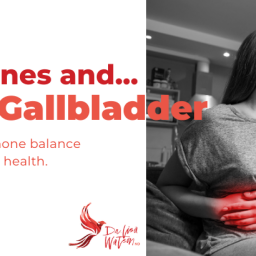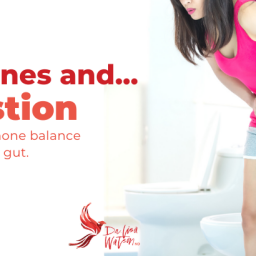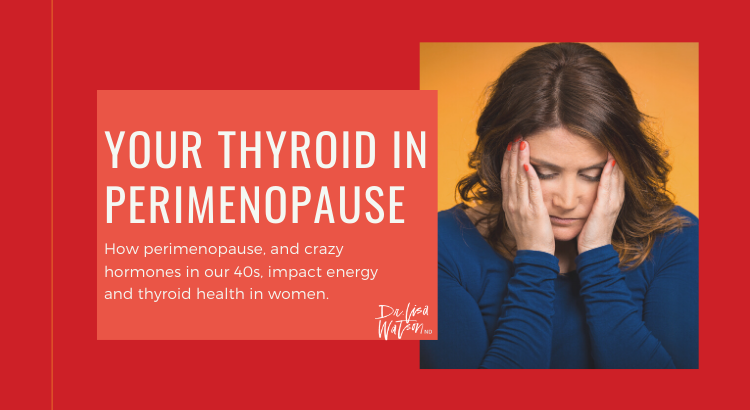
Your 40s are a time of significant hormonal changes. There is no greater time of transition in a woman’s life – other than puberty! But not only are your reproduction hormones changing, your thyroid can be as well.
With 30-40% of women developing a thyroid condition in their lifetime, and rates increasing as we age, many women in perimenopause and menopause will be dealing with hormone imbalances in both these important systems.
Thyroid Basics
Your thyroid is a small, butterfly shaped gland found in your throat, near your voice box. Your thyroid gland is responsible for producing the hormones that regulate your metabolism (i.e. your energy!!) If your thyroid isn’t functioning, well you are going to notice it!
Or so you would think… up to 60% of people who have an underfunctioning thyroid don’t know it. Often they chalk up their symptoms to age, or stress, or overwork and don’t realize it could actually be a hormone imbalance.
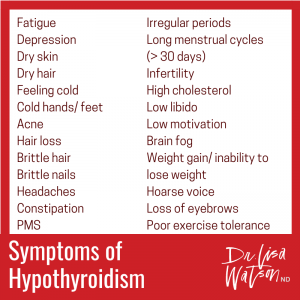
Thyroid and Perimenopause: A Precarious Balance
Looking at the symptoms of hypothyroidism, they can sound a lot like the symptoms of perimenopause – fatigue, low mood, hair loss, weight gain, brain fog, and more. So how do you determine if you have a thyroid imbalance, perimenopause, or both?
The answer is hormone testing. Comprehensive hormone testing will look at not just your reproductive hormones, but also your thyroid hormones, blood sugar hormones, pituitary hormones and adrenal hormones. No hormone functions in isolation, each one influences the others. And to get a clear picture of your hormones, and the impacts they have on your health and well-being, you need to consider comprehensive testing.
A simple blood test will identify most cases of hypothyroidism (or hyperthyroidism, which is associated with anxiety, sleeplessness, rapid heart rate, and diarrhea.) More advanced testing may be necessary to assess for your reproductive hormones, adrenal, and pituitary hormones.
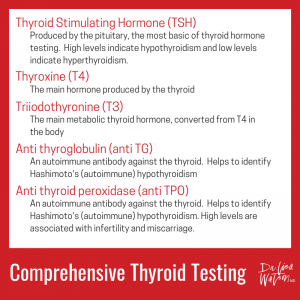
Tipping Balance – Symptoms of Both Perimenopause and Hypothyroid
The only way to truly differentiate thyroid hormone imbalances and hormone imbalances associated with perimenopause is through hormone testing, however with the overlap in symptoms many women brush off their concerns as simply the impact of aging. Below I’ll highlight some of the symptoms that may be due to either hypothyroidism or perimenopause and help you identify if you should seek out testing.
Weight Gain
During the 10 years leading up to menopause women can experience weight gain, or struggle with more difficulty losing weight. It is not unusual for a woman to gain 5-10kg as a result in changes in hormone balance, activity levels or changes in metabolism.
Hypothyroidism is known to cause weight gain, or difficulty losing weight, because it decrease our metabolism – our ability to convert calories from food into energy. Women with hypothyroidism often feel tired in addition to struggling to maintain a healthy body weight.
Perimenopause also can lead to weight gain in women with healthy thyroid function. Higher levels of estrogen, common in women leading up to menopause, can lead to increased fat gain around the abdomen and encourage weight gain. Low levels of progesterone are associated with a lower metabolism, leading us to burn fewer calories than we would otherwise.
Irregular Periods
One hallmark of perimenopause is crazy periods – one month it may be late and heavy, and the next it may be early and light. Or any combination of those! This is due to the declining egg quality in our years leading up to menopause and the resulting hormone imbalances.
For women with hypothyroidism, heavy periods are a known symptom. While often attributed to women being overweight (even though many women with hypothyroidism are a normal body weight) and thus estrogen dominant, hypothyroidism can lead to heavy periods and should be considered as a potential cause for women, especially if their periods were previously normal.
Temperature Changes
One of the most common symptoms of hypothyroidism is an intolerance to cold, or a feeling of being colder than other people around you. However, cold sensations in the fingers and toes can also be caused by perimenopausal changes in adrenal hormones that cause decreased blood flow to our extremities, making them feel cold.
Hot flashes and night sweats are most often associated with menopause, but for many women begin during the years leading up to menopause. Typically these symptoms are intermittent, and come and go with no real pattern until a woman is closer to true menopause. Hot symptoms, like night sweats and flushes, can also be associated with an overactive thyroid. Hyperthyroidism, while much less common than hypothyroidism, also impacts more women as we age. An intolerance to heat is a common symptom of an overactive thyroid.
Sleep Challenges
Hot flashes may be the most flashy symptom of perimenopause, but sleep challenges are by far the concern most women bring up in my practice. For women in their 40s and 50s, nearing menopause, the most common sleep issue is waking in the night, and not being able to resume sleep. This mid-sleep wakening can be infuriating as women will only get a few hours of good quality sleep before waking. Many standard sleep treatments don’t touch this type of sleep, so it can take some significant effort to overcome this sleep dysfunction.
In hypothyroidism the sleep is often sufficient, without in night awakenings, but the sleep itself is not restorative. Women may sleep for 8 hours or more, but still wake feeling exhausted. This is due to the low metabolic state of hypothyroidism – your body is not able to make the energy to keep you feeling alert and energized.
Depression
This is a serious concern for women in their 40s, as rates of antidepressant prescriptions are highest among this population, regardless of whether there is an underlying hormone imbalance or not. Both perimenopause and hypothyroidism can lead to symptoms of depression – feeling sad, less interested in your daily activities, or an increased/ decreased desire to sleep – all of which can be improved by correcting the underlying hormone imbalance.
Regaining Balance
It can be incredibly disempowering to read all about the hormonal changes that occur during our transition from our reproductive years into menopause. But our experience doesn’t have to be disempowering. I am on a mission to share this information with women so we CAN make changes and impact our hormones in a positive way through our 40s and 50s. Through an understanding of our hormone balance we can identify opportunities – opportunities for comprehensive testing to identify hormone imbalances, opportunities to make diet, lifestyle and exercise changes to support our hormone balance, and opportunities to seek out support when our hormone balance tips in a way that leads to symptoms. There is so much we CAN do, when we know there is hope. And there is hope now. Get in touch, let’s get to it.
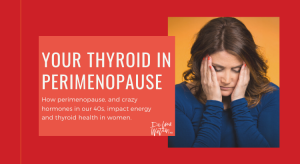
Disclaimer
The advice provided in this article is for informational purposes only. It is meant to augment and not replace consultation with a licensed health care provider. Consultation with a Naturopathic Doctor or other primary care provider is recommended for anyone suffering from a health problem.




